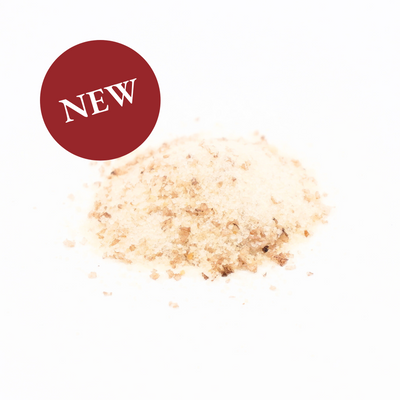Q. What should I consider when buying extra virgin olive oil?
consider these important factors in your buying decision:
Quality - Favourable chemical and sensory properties help define quality when it comes to extra virgin olive oil.
Freshness - Consider the extra virgin olive oil’s crush or harvest date in conjunction with the smell, taste and how it’s been stored.
Mild or Robust - When choosing between mild or robust robust extra virgin olive oil, the best decision is to go with the one that tastes best to you! If you like both, choose a more robust extra virgin olive oil for bolder flavoured foods, and a milder extra virgin olive oil for more delicate foods.
Also, be wary of clever marketing on labels. Healthy sounding names such as "mild olive oil,” “extra light-tasting olive oil," or "organic olive oil." aren’t extra virgin olive oils and won’t have the health benefits and taste unique to extra virgin olive oil.
To ensure your purchase holds all these advantages, we recommend considering the following:
Quality: The quality of an extra virgin olive oil is determined in two ways: by examining the olive oil’s chemical properties, and a sensory evaluation. A detailed description of the chemical parameters, and how they affect the olive oil’s quality, can be explored here [link to FAQ on olive oil chemistry]. By smelling and tasting olive oil, you can easily determine its character. It should have elements of fruitiness, pungency, and bitterness with no rancidity. Different olive varieties, growing conditions, cultivation, and production methods result in a wide range of character. Generally, however, the words "fresh" and "green" should freely come to mind when tasting any quality extra virgin olive oil [link to FAQ on olive oil tasting].
Freshness: Extra virgin olive oil does not improve with age. Even the best extra virgin olive oils lose their quality over time, eventually losing their “extra virgin” status. The date that matters most when determining freshness is the date the olives were harvested and crushed into oil. Bottling dates, best by dates, and expiration dates are not very reliable indicators of freshness, because they don't necessarily relate to the crush or harvest date. Most olive oil producers are not legally required to indicate the date of production, which is why it’s important to stay sharp when reading labels.
Also consider how the extra virgin olive oil is stored. Heat, light, and oxygen are extra virgin olive oil's three main enemies. Extra virgin olive oil deteriorates faster if exposed to these conditions. Avoid buying extra virgin olive oil stored in clear bottles, as well as ones exposed to UV radiation-emitting fluorescent lights. Especially if it's a very green oil, which indicates a high chlorophyll content! Learn more about how to store your extra virgin olive oil at home here [link to FAQ]. Go here to find out how long extra virgin olive oil lasts [link to FAQ].
Freshness is also evident in the smell and taste of an olive oil. An olive oil with a greasy mouthfeel that has an "olivey taste" or the "smell of crayons" is a sign that oil is going rancid and should be avoided. So look at the crush date, in conjunction with smelling and tasting the oil, to assess its freshness. Read more here on why fresh is best when it comes to extra virgin olive oil [link to FAQ].
An olive oil with a cloudiness to it does not indicate any additional flavour or health benefits, but usually a shorter shelf life. If you see that cloudy sediment has settled at the bottom of the bottle, the olive oil may also have developed some off character notes.
Usage: Following the advice above, you should be well on your way to buying an extra virgin olive oil of superb quality, health benefits, and taste. The last step is to consider how you want to use it in your cooking.
Some extra virgin olive oils are creamier and more delicate in flavour (think Arbequina), lending themselves well to cooking or finishing more delicately flavoured foods, such as seafood and light vegetables. More “robust” extra virgin olive oils are punchy and bolder in flavour (think Koroneiki) and are ideal for cooking or finishing foods that also have bold flavours such as meat and pasta dishes. Flavoured extra virgin olive oils add yet another dimension to dishes. In particular, they make for easy salad dressings, marinades, and bread dippers. Beyond taste, olive oils with very low free fatty acid content are great for cooking at higher heat [link to FAQ on cooking with olive oil].



